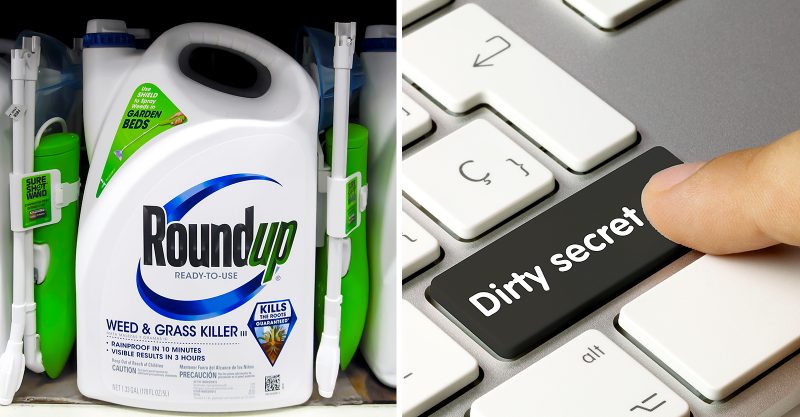Miss a day, miss a lot. Subscribe to The Defender's Top News of the Day. It's free.
“Nay, indeed, if you had your eyes, you might fail of the knowing me: it is a wise father that knows his own child. Well, old man, I will tell you news of your son: give me your blessing: truth will come to light; murder cannot be hid long; a man’s son may, but at the length truth will out.” — Lancelot, in Shakespeare’s “The Merchant of Venice”
Truth will out. Eventually, given enough time, the good, the bad and the ugly will be revealed.
Such is the case with Monsanto‘s dubious herbicide glyphosate. The long-winding story on how Monsanto and its governmental enablers at the Environmental Protection Agency first registered the weedkiller Roundup under at best dubious circumstances is sickening.
In March 2015 U.S District Judge for the Northern District of California allowed public release of internal Monsanto documents showing how Monsanto influenced EPA to reclassify glyphosate from a Class C carcinogen to a Class E category which paved the way for glyphosate Roundup production.
It was nothing short of a cover-up that put greed ahead of public safety.
And now ironically we learn the cover-up may have included Monsanto’s own investors.
Bayer AG purchased Monsanto and dumped the company name back in 2018. As if … that would be helpful. Bayer has lost a string of jury trials where glyphosate was believed to be responsible for cases of non-Hodgkin lymphoma.
Now Bayer investors are saying the German agri-giant played fast and loose with the facts, misleading them on 1) the safety of glyphosate and Roundup; 2) Bayer’s efforts at due diligence; and 3) the legal risks in the acquisition of Monsanto.
Their lawsuit in the U.S. District Court for the Northern District of California makes for some interesting reading:
“Defendants specifically downplayed the liability risks related to Monsanto’s Roundup product, emphasizing that Bayer conducted a ‘thorough analysis’ during the due diligence process and ‘undertook appropriate due diligence of litigation and regulatory issues throughout the process’ which led Bayer to finalize the Acquisition.
“These and similar statements made by Defendants during the Class Period were false and misleading. In truth, Defendants knew or recklessly disregarded that the Acquisition would not result in the benefits for Bayer that Defendants had represented, due to Monsanto’s significant exposure to liability risk related to Roundup.”
Naturally, Bayer tried to get the case — Sheet Metal Workers National Pension Fund v. Bayer Aktiengesellschaft — thrown out of court. But in October the court ruled against Bayer, finding, among other things, that:
“As for the differences between glyphosate and Roundup, Plaintiffs have pled that Monsanto was aware the Roundup formulation was possibly more dangerous than glyphosate, ¶ 141, and that (Bayer CEO Werner) Baumann stated during a conference call, “there is no difference” between glyphosate and the Roundup formulation, ¶ 250.
“By showing that an executive’s statement was in contradiction to Monsanto’s own assessment of the science, Plaintiffs have adequately pled a material misstatement concerning the safety risks of Roundup as compared to glyphosate.”
So now we’re going to get yet another layer of court discovery on glyphosate. Given all we already know Roundup and glyphosate should have not been unleashed on the world.
But how companies like Monsanto are willing to go to almost any length — including duping its own investors — is a new low.
Truth will out.
Originally published by Investigate Midwest.







